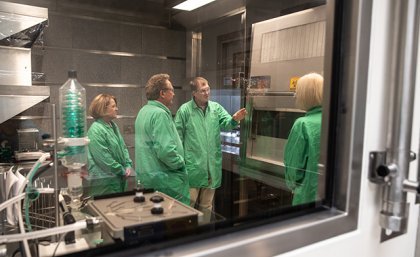
image credit- UQ
In one of the world’s first plastics contamination-controlled laboratories, Australia-based University of Queensland (UQ) researchers have begun testing blood and tissue samples to develop ways to detect and measure nanoplastics in the human body.
A partnership between UQ and Minderoo Foundation, the Minderoo Centre - Plastics and Human Health will enable world-leading research using this unique lab, state-of-the-art equipment and specific techniques to measure nanoplastics in samples.
Minderoo Foundation Chair, Dr Andrew Forrest AO, said until now, researchers have not been able to accurately measure plastic particles at this scale to determine whether fragmented plastics and plastic-associated chemicals pose a human health risk.
The UQ-Minderoo research team expects to release their first findings by the end of the year and will then actively seek collaborations with other globally leading institutions working on similar missions around the world.
“Our team has been working tirelessly to develop methods that are sufficiently sensitive and robust to give us clear data to ensure plastic hasn’t entered the sample from the external environment. “For example, if we’re working on a tissue sample in an open lab where plastics and additives are present in the air, it could become contaminated during testing", said Professor Kevin Thomas, Director, UQ’s Queensland Alliance for Environmental Health Sciences.




